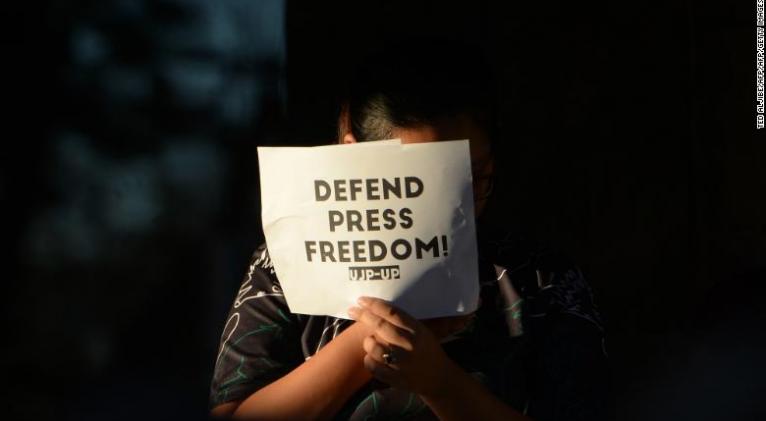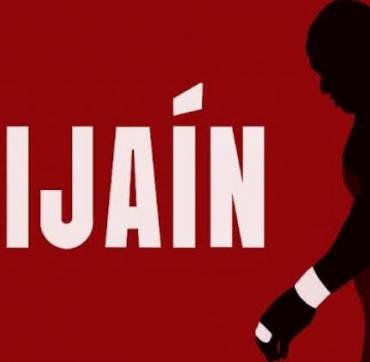Police attacks on journalists in U.S. prompt global condemnation
especiales

You know something is askew when authoritarian-run Turkey feels emboldened to speak out after a reporter for its public broadcaster TRT was struck by a nonlethal round in Minneapolis.
“Press freedom is the backbone of democracy,” tweeted Fahrettin Altun, a spokesman for the Turkish president, borrowing a phrase the U.S. State Department often uses in tutoring fledgling democracies across the globe.
Obviously, context is due. The United States is not in Turkey’s league — and must never be, if the great American experiment is to endure — when it comes to repression of the press. Turkish President President Recep Tayyip Erdogan has shut down dozens of news outlets and is keeping at least 47 journalists in jail as part of his crackdown on independent scrutiny, according to the Committee to Protect Journalists.
More context: No one would suggest that journalists should expect or deserve a protective shield when they venture into mayhem to get the story. I have the utmost respect for my colleagues who cover these street scenes, especially the photographers who can be targets of lawlessness because of the expensive equipment they carry or a looter’s fear that his or her act is being documented. And often there is little or no time to retreat from wafting tear gas or a stray rubber bullet. Reporting on unrest is a challenge of courage and craftiness.
But, most important, it is not a crime.
Still, the number, severity and geographic breadth of law enforcement arrests and attacks of journalists during the recent wave of demonstrations has startled U.S. media veterans — and attracted worldwide attention. The Guardian has documented 148 such incidents, and in 72% of them the journalists either had visible credentials or had identified themselves as working media.
“I’ve never seen so many incidents with police and reporters simultaneously in different cities,” tweeted Maggie Haberman of the New York Times.
Some of these disturbing scenes have been playing out on live television. CNN viewers watched on May 29 as reporter Omar Jimenez and crew were arrested in Minneapolis. He could not have been more polite or cooperative with the State Patrol even as he was handcuffed without explanation. In the moments before he calmly told troopers: “We can move back to where you like. ... We are live on the air at the moment. ... Just put us back where you want us. We are getting out of your way.”
Minnesota Gov. Tim Walz later apologized on air to Jimenez.
An even uglier scene was being beamed live into Australia on Monday as a crowd of protesters was being cleared out of Lafayette Square shortly before President Trump made his infamous walk to St. John’s Church to hold up a Bible for a photo-op. The camera operator was bashed with an officer’s riot shield, knocking his camera to the ground, and another struck the reporter, Amelia Brace, with a baton.
“You heard us yelling there that we were media, but they don’t care,” Brace told viewers.
Australian Prime Minister Scott Morrison asked his country’s embassy to investigate.
“We take mistreatment of journalists seriously, as do all who take democracy seriously,” said Arthur Culvahouse Jr., Australia’s ambassador to the United States. Journalists from Germany, France, Norway, Sweden, Canada and the U.K. also have been arrested or attacked by police during the protests.
Unlike Minnesota’s governor, the Trump White House doesn’t do apologies. Spokeswoman Kayleigh McEnany insisted the officers had “a right to defend themselves,” even though the video showed an act of aggression. Meanwhile, two Park Police officers have been assigned administrative duties while the episode is being reviewed.
The arrest and physical attacks of journalists on American soil has repercussions far beyond our borders. As illustrated by Turkey’s smug reaction, it gives comfort to tyrants elsewhere who then rationalize their suppression of independent journalism by pointing to the scenes in the United States where reporters are detained, roughed up and called “scum,” “fake news” and “enemies of the people” by their president.
Two years ago, I attended a conference of international journalists in Singapore in which Michelle Giuda, a Trump appointee to the State Department, was quoting Thomas Jefferson and calling freedom of the press “a right we hold very near and dear.” Many in the audience, well aware of Trump’s rhetoric and threats to media, openly scoffed at the spin.
Imagine if she tried those sanctimonious lines now.














Add new comment